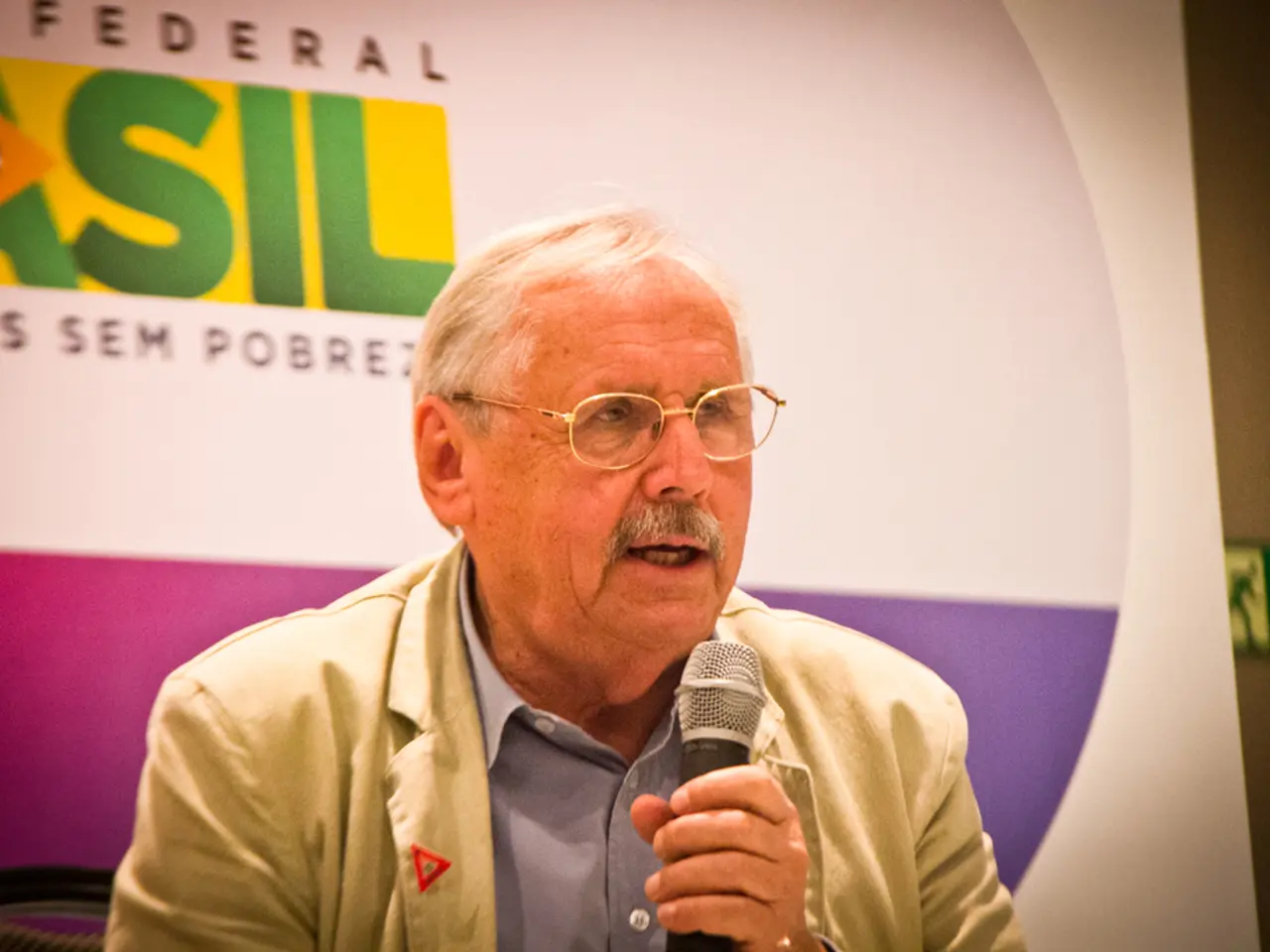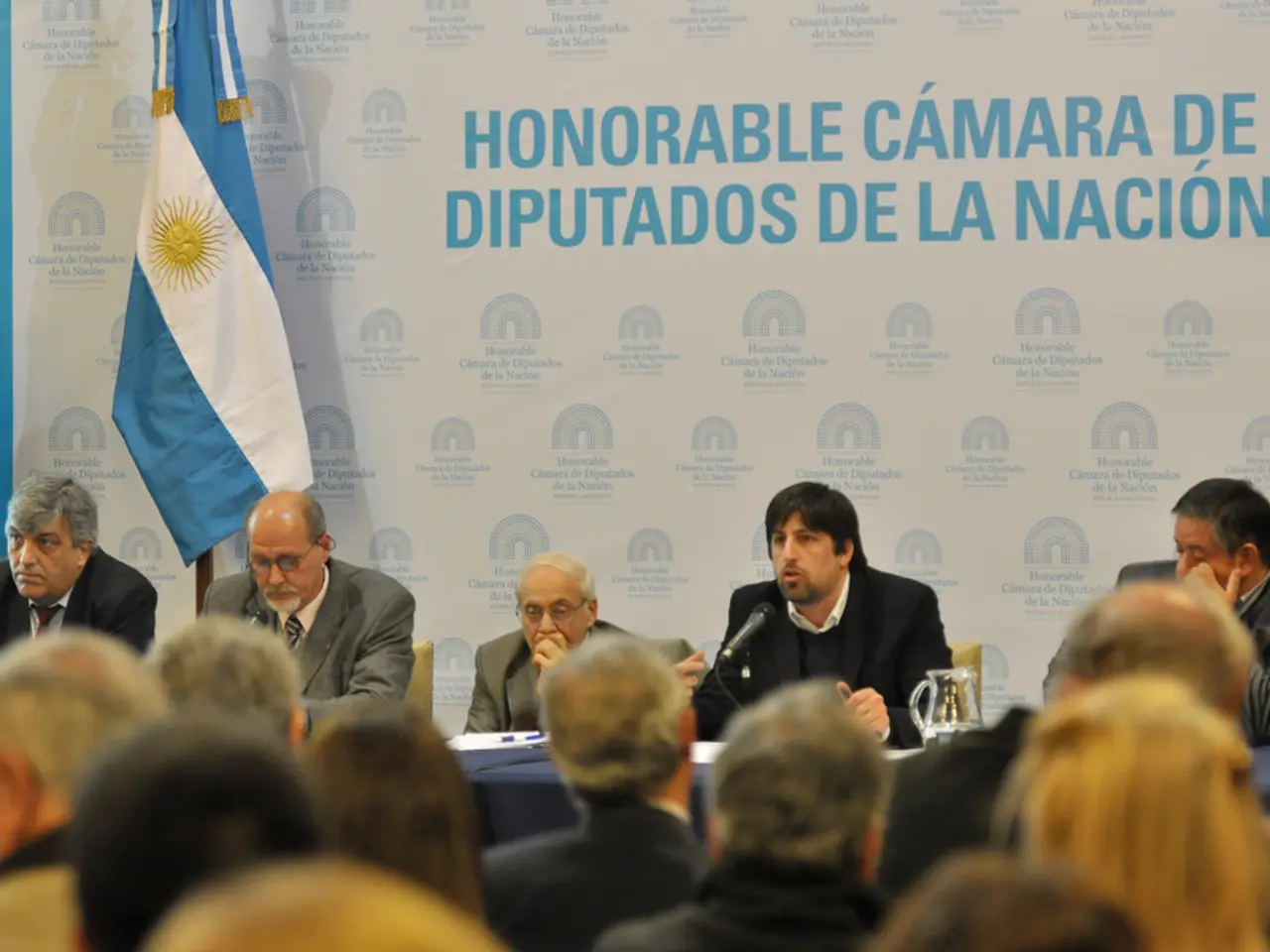Wenzel remains a formidable force at the age of 70
Hans-Eckardt Wenzel, a renowned German artist, has spent the past five decades making significant contributions to music, literature, and culture. Known as a "Liedermacher" and a cabaret artist, Wenzel's work has made him a household name in Germany, particularly in the eastern parts of the country[1][2].
Wenzel's musical style is unique, blending elements of speed polka, folk music, country, blues, jazz, and even classical compositions, such as Bach chorales or hymns[1]. His lyrics often contain poetic verses reminiscent of old folk songs or works by Heine and Paul Gerhardt[1]. Some of his pieces also showcase tongue-twisting wordplay, adding a playful element to his often critical reflections on society and politics[1].
In addition to his musical career, Wenzel is also an accomplished author, having co-authored a comprehensive biography of the great filmmaker Konrad Wolff[1]. He has also been involved in political interventions, interviews, and contributions to cultural policy, armament, and war[2]. In 1989, Wenzel was the main author of the resolution of the rock musicians who demanded fundamental reforms for DDR society and a democratic socialism[2].
Wenzel's concerts are a spectacle, with arrangements by his guitarists Thommy Krawallo and Hannes Scheffler, and often featuring clownery, moderations, and jokes[1][2]. His performances can last for hours, with Wenzel taking the stage as early as 5 PM and continuing until 3 AM at open-air events[1].
Wenzel's work is not just entertaining; it is also thought-provoking. His music often tackles political and social issues, earning him respect in both artistic and political spheres[1]. Despite his critical reflections, Wenzel's self-irony gives even harsh social criticism a certain lightness, as shown in his pieces that mock informers, opportunists, and the brutality of the system[2].
In 2023, Wenzel was one of the first signatories of the "Manifesto for Peace" initiated by Alice Schwarzer and Sahra Wagenknecht[2]. He was also one of the initiators of the petition "Culture in the Basic Law"[2]. On his 70th birthday, Wenzel will be on the stage at the sold-out Berlin Admiralspalast[1].
Wenzel's influence extends beyond Germany. He has set poems by others to music, such as on the album "Stars gleam" with texts by Johannes R. Becher and another album with ballads by the Austrian poet Theodor Kramer[1]. His music and performances continue to captivate audiences, making him a "king" in his field[1].
In conclusion, Hans-Eckardt Wenzel's career spans five decades, during which he has made significant contributions to music, literature, and culture. His work is marked by a unique blend of styles, a thought-provoking approach to social and political issues, and a knack for entertaining audiences with clownery, jokes, and self-irony[1][2]. Wenzel's influence continues to resonate, making him a prominent figure in German arts and culture.
[1] "Hans-Eckardt Wenzel." Wikipedia, Wikimedia Foundation, 13 Apr. 2023, https://en.wikipedia.org/wiki/Hans-Eckardt_Wenzel. [2] "Hans-Eckardt Wenzel: Ein Leben für die Kunst." Spiegel Online, 14 Feb. 2023, https://www.spiegel.de/kultur/musik/hans-eckardt-wenzel-ein-leben-fuer-die-kunst-a-1644853.html.
Wenzel's unique musical style, encompassing various genres like speed polka, folk, country, blues, jazz, and classical, offers a captivating blend within his entertaining performances. His critical reflections on society and politics are presented in a thought-provoking manner, often intertwined with tongue-twisting wordplay and humorous elements.








